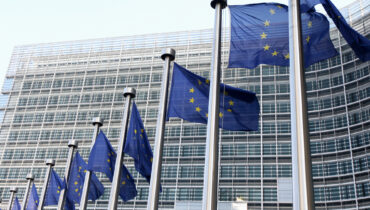The e-commerce VAT reform that came into force in the EU on 1st July 2021, is a complete overhaul of the VAT regime for e-sellers & dropshippers, and also brings in new obligations for marketplaces.
What are the implications of the new regulations? What are the new tax rules that apply to each type of transaction? When and how should the One Stop Shop be used, and what for? What risks are there? What do you need to be wary of? How can you avoid the pitfalls?
VAT rules, thresholds and obligations for e-sellers since the July 2021 reform
The rules applied to distance selling depend on the type of transactions you carry out. There are two possible scenarios:
- Intra-Community distance selling: when the transactions are made from an EU Member State – the country where the e-seller is estalished or the country of storage, for example, Amazon’s Pan-European programme – to other Member States, where the non-taxable customers are established.
- Distance selling of imported goods: when the transactions come from third countries (outside the EU) to EU Member States where the non-taxable customers are established.
For Intra-Community distance selling
Since the e-commerce VAT reform came into force on 1st July 2021, a single turnover threshold of €10,000 (turnover achieved throughout the European Union) determines the place of taxation :
- Where the total amount of Intra-Community distance sales is less than €10,000, VAT is payable in the sellers Member State or where the goods are stored.
- Where the total amount of Intra-Community distance sales exceeds €10,000, VAT is payable in the consumer’s Member State.
The seller has two options for their VAT return, which may require the assistance of a fiscal representative:
- Register, fe a return and pay the VAT due in the various countries where their consumers are established via the One Stop Shopor (OSS).
- Register for VAT each of the countries where consumers are established and file a local VAT return.
Please note that if an e-seller holds stock in an EU Member State other than the State where they are established, they must register for VAT in the Member State where the stock is held.
For the distance selling of imported goods/dropshipping
Reminder: Dropshipping is a solution that allows an e-seller, called a dropshipper, to sell online products that are stored with a supplier outside the European Union. Generally, it is the latter who is in charge of making the delivery to the end customer rather than the seller.
The two main new points of the VAT regime introduced by the July 2021 reform for distance sales of imported goods are:
- The abolition of a VAT import exemption for parcels worth less than €22.
- The implementation of a new “IOSS” (Import One Stop Shop).
A dropshipper might have the following two scenarios when it comes to filing a VAT return:
- If the intrinsic package value is less than €150 in the case of a martketplace, they can file a VAT return and pay it, either via their own IOSS (Import One-Stop Shop), or via the marketplace that it uses. In both cases, the dropshipper benefits from an import VAT exemption.
- When the intrinsic value of the parcel is more than €150, the dropshipper must register for and pay import VAT, in the end consumer’s EU Member State. The dropshipper should invoice the end consumer with VAT included, quoting the destination country VAT rate on the invoice.
If you have any doubts about your VAT obligations in a particular country, use the EASYTAX VAT Simulator to find out what you need to know in a few simple clicks!
How to declare VAT as an e-seller in 2021 and beyond?
Introducting the One Stop Shop
To help e-sellers meet their VAT obligations in each EU Member State, the “VAT and e-commerce” reform which came into force in July 2021 offers them two options for filing their VAT returns, either
- via a classic One Stop Shop (OSS),
- or an Import One Stop Shop (IOSS).
But beware: this doesn’t cover all types of transaction and there are still some difficulties in spite of the simplification. This is why using a fiscal representative or tax advisor is still an effective option ensuring total peace of mind.
The One Stop Shop doesn’t allow e-sellers to declare all of the operations they carry out.
On the one hand, for certain translactions involving goods stored within EU Member States e-sellers must remain registered for VAT. This includes:
- Domestic purchases
- Intra-Community acquisitions
- Assignments treated as Intra-Community acquisitions
- Transfers of stocks treated as Intra-Community supplies
- Local sales.
On the other hand, as far as B2B transactions are concerned, e-sellers must continue to file traditional VAT returns.
Lastly, the One-Stop Shop does not allow for input VAT to be deducted. Therefore, e-sellers (whether they are European or not) wishing to recover their VAT, without a local VAT number, will have to make so-called “8th Directive” or “13th Directive” VAT refund claims.
Using the One Stop Shop does not exempt e-sellers from the complexities and risks of VAT
Although at first sight the One Stop Shop seems to make it easier to delare certain types of transaction, there are areas of vigilance to take into account in advance to avoid frustration.
- Firstly, the translaction must undergo legal analysis to ensure that the VAT return for the transaction in question is indeed a One-Stop-Shop return and not a traditional VAT return.
- Once that is decided, excellent knowledge of the regulatory obligations (VAT, INTRASTAT, electronic invoicing, etc.) specific to the EU Member States is key.
- Lastly, you need to know the VAT rate of the Member State concerned.
If these items are not followed correctly, the resulting errors could lead to serious consequences like:
- Tax audits.
- Penalties of up to 240% of the VAT due (this is the case for Italy).
- The closure of the e-sellers’ portals ( for up to two years in the case of repeated errors) who will have to register for VAT in the countries concerned during this period.
Scenarios like the ones listed above cause many e-sellers, dropshippers and marketplaces to outsource these tasks to tax representation specialists. This enables them to secure their operations while focusing their efforts on their core business.
A fiscal representative is a reassuring solution for sellers established in the European Union
If the seller is established in the European Union, they may choose to entrust the management of their transacctons and/or One-Stop-Shop to a tax advisor, as they can offer support with any issues that may arise from this reform:
- Analysis of the transactions and the resulting obligations;
- Identification of the VAT rate for your products, by country.
- Preparation and transmission of VAT returns.
- Management of communications with local authorities in the language of the country concerned.
- Assistance during a tax audit carried out by one or more Member States.
The fiscal representative: an obligation for sellers established outside the European Union
If the seller is established in a third country outside the European Union, they have no choice but to use a fiscal presentative established in the European Union.
Transaction analysis, VAT registration, VAT returns, Intrastat & ESL returns, VAT recovery: EASYTAX’s fiscal representation, provides you with a privileged contact who will work alongside you day-to-day to take care of all your operations in one place and ensure your international VAT compliance.









